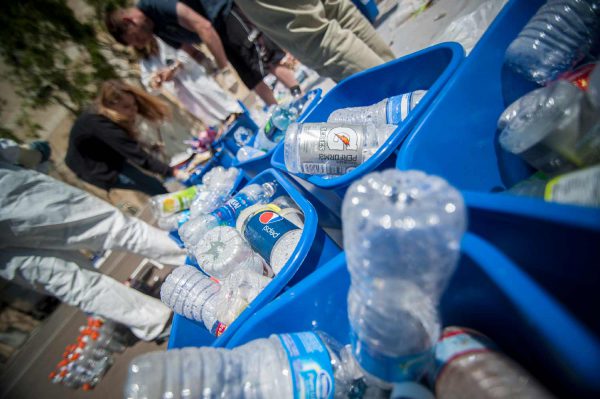SINGAPORE, 15 November 2019: Everyone is jumping on the ban the plastics bandwagon and not always for the right reasons.
It’s good for business if you are a marketing guru. You win attention, and it’s trendy. You improve your visibility rating on social media, and before you know it, you are an expert heading for the prolific conference trail around the region.
The latest trendy description for all of this frenzied social media hype is “circular economy”. Have we just rediscovered the ancient truth that what goes around comes round, or perhaps we have rediscovered an interest in Buddhist philosophy? If we are in a pickle over plastic the natural order of things points the way to plain old fashioned reincarnation.

Not a day goes by without a hotel group popping up, saying it is banning plastic. One even went as far as to say it would go beyond removing straws from smoothies and rid the back of the house of all plastics whatever the variety for good measure. Is it difficult to imagine a hotel upstairs and downstairs free of all plastic?
The plastic bottle is the icon of all that is evil about the plastic invasion. The single-use variety constitutes an easy target for action along with the inglorious plastic bag, due to be phased out entirely in Thailand’s popular shopping malls by January 2020. With these two commodities, we appear to be making headway in the quest for a plastic-free future.
The plastic bottle is already recyclable and tons of it every month go into the production of thread for cheap textiles. It’s the plastic wrappings and packaging the scraps of sealing that are not recyclable. We end up with a pile of them every week that we sling into garbage bins for someone else to deal with, or it gets incinerated, considered a poor option by any count.
Yes, hotels and travel companies that recognise the challenge we all face to clean up the planet deserve praise, but it is not enough. We need to lobby far more strongly with governments and major corporations to also end the production of plastic wrappings and packaging.
The onus is on the end-user to clean up the mess, sort their garbage for recycling while the corporations that created the mess in the first place are off the hook.
Governments need to tax corporations heavily so they can experience the real cost of using plastic. In the pre-plastic era, there was a refund on returning empties. If that is not an option today, then companies should pay a tax to ensure the garbage they created, bottles or packaging, is recycled or disposed of properly without harming the environment.
There s a trend in the travel industry to tap the CSR programmes of big corporations for their ban plastic campaigns that are linked to tourism. It presents an image that corporations are partners in the quest for solutions. On social media posts, they are perceived as champions of change when in fact they are the culprits that are over packaging with plastics to make a product look good while ignoring the almost impossible task of dealing with the leftovers.
When travel and hospitality leaders recruit partners for their save the planet campaigns, they need to check the track record of mega-corporations such as Unilever. It recently was trumpeted as a partner of a clean-up campaign in Thailand when recent Greenpeace reports identified it, along with Nestle, as one of the main plastic offenders in Southeast Asia.






